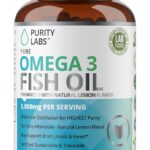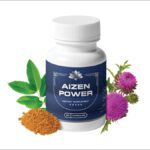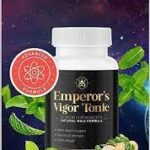- Stress Reduction: Adaptogens are renowned for their ability to modulate the body’s stress response and help alleviate the negative effects of stress on physical and mental health. They may help reduce feelings of anxiety, tension, and fatigue, promoting a greater sense of calm and well-being.
- Enhanced Resilience: Adaptogens are thought to enhance the body’s resilience to stressors by regulating the hypothalamic-pituitary-adrenal (HPA) axis and supporting the production of stress hormones such as cortisol. This may help the body adapt more effectively to both acute and chronic stressors.
- Increased Energy and Vitality: Many adaptogens are considered to have energizing properties that can help boost stamina, endurance, and overall vitality. They may improve physical performance and mental clarity, making it easier to cope with daily challenges and maintain productivity.
- Improved Cognitive Function: Some adaptogens have been shown to enhance cognitive function and mental clarity. They may help improve focus, concentration, memory, and cognitive performance, particularly during periods of mental fatigue or stress.
- Balanced Mood: Adaptogens may help regulate mood and emotional well-being by modulating neurotransmitter levels and supporting neurotransmitter balance in the brain. They may help alleviate symptoms of depression, irritability, and mood swings, promoting a more stable and positive mood.
- Immune Support: Certain adaptogens have immunomodulatory properties that can help strengthen the immune system and enhance the body’s natural defense mechanisms. They may help reduce the risk of infections and promote overall immune health and resilience.
- Anti-Inflammatory Effects: Many adaptogens possess anti-inflammatory properties that can help reduce inflammation throughout the body. Chronic inflammation is associated with various health conditions, including autoimmune diseases, cardiovascular disease, and neurodegenerative disorders.
- Hormonal Balance: Some adaptogens have hormone-balancing effects and may help regulate hormone levels in the body. They may be particularly beneficial for women experiencing hormonal imbalances, such as during menopause or menstruation.
- Supports Physical Recovery: Adaptogens may help support faster recovery from physical exertion, exercise-induced stress, and injuries. They can help reduce muscle soreness, inflammation, and oxidative stress, allowing the body to recover more efficiently.
- General Well-Being: Incorporating adaptogens into your daily routine can contribute to overall health, vitality, and well-being. They offer holistic support for the body and mind, helping to maintain balance, resilience, and optimal functioning in the face of various stressors.
It’s important to note that while adaptogens offer numerous potential benefits, individual responses may vary, and more research is needed to fully understand their mechanisms of action and efficacy. As with any supplement or herbal remedy, it’s advisable to consult with a healthcare professional before starting an adaptogen regimen, especially if you have underlying health conditions or are taking medications.
Of course! Here are some additional positives and benefits of adaptogens:
- Supports Adrenal Health: Adaptogens are often used to support adrenal gland function, which plays a crucial role in the body’s stress response system. By promoting adrenal health, adaptogens may help prevent adrenal fatigue and burnout caused by chronic stress.
- Enhances Physical Performance: Some adaptogens, such as Rhodiola rosea and Panax ginseng, are believed to enhance physical performance and exercise capacity. They may improve endurance, strength, and recovery time, making them popular among athletes and fitness enthusiasts.
- Antioxidant Protection: Many adaptogens possess antioxidant properties that help protect cells from oxidative damage caused by free radicals. Antioxidants play a key role in reducing inflammation, preventing cellular aging, and lowering the risk of chronic diseases.
- Supports Cardiovascular Health: Certain adaptogens have cardio-protective effects that may help support heart health and reduce the risk of cardiovascular disease. They may help lower blood pressure, cholesterol levels, and oxidative stress, promoting overall cardiovascular well-being.
- Enhances Sleep Quality: Some adaptogens, such as Ashwagandha and Holy Basil, have calming and sedative effects that may promote better sleep quality. They may help reduce insomnia, improve sleep latency, and enhance overall sleep duration and efficiency.
- Balances Blood Sugar Levels: Certain adaptogens, including Rhodiola rosea and Ginseng, may help regulate blood sugar levels and improve insulin sensitivity. This can be beneficial for individuals with diabetes or those at risk of developing metabolic disorders.
- Supports Cognitive Aging: Adaptogens may help protect against age-related cognitive decline and neurodegenerative diseases by promoting brain health and neuronal function. They may enhance neuroplasticity, memory, and cognitive flexibility, supporting healthy aging of the brain.
- Promotes Hormonal Harmony: Adaptogens can help regulate the endocrine system and promote hormonal balance throughout the body. They may be particularly beneficial for women experiencing hormonal fluctuations associated with menopause, PMS, or hormonal imbalances.
- Alleviates Symptoms of Fatigue: Adaptogens are commonly used to combat fatigue and increase energy levels, especially during times of physical or mental exhaustion. They may help reduce feelings of tiredness, lethargy, and lack of motivation, promoting a greater sense of vitality and well-being.
- Holistic Stress Management: Adaptogens offer a holistic approach to stress management by addressing the underlying physiological mechanisms involved in the body’s stress response. They work synergistically to support multiple body systems, helping to restore balance and resilience in the face of stressors.
By incorporating adaptogens into your wellness routine, you can tap into their diverse array of benefits and support your body’s natural ability to adapt, cope, and thrive in today’s fast-paced world. However, it’s essential to choose adaptogens wisely, listen to your body, and consult with a healthcare professional if you have any concerns or underlying health conditions.
Using adaptogens effectively involves several key considerations to maximize their benefits and support overall health. Here’s a guide on how to use adaptogens:
- Choose the Right Adaptogen: There are various types of adaptogens, each with its unique properties and potential benefits. Research different adaptogens to find the ones that align with your specific health goals and needs. Some popular adaptogens include Ashwagandha, Rhodiola rosea, Holy Basil, Ginseng, and Cordyceps.
- Start with One Adaptogen: If you’re new to adaptogens, start with one adaptogen at a time to gauge your body’s response and tolerance. Once you’re familiar with how your body reacts, you can consider incorporating multiple adaptogens into your routine, either individually or as part of a blend.
- Choose Quality Products: Select high-quality adaptogen supplements from reputable brands that prioritize purity, potency, and transparency. Look for products that have been third-party tested for quality assurance and meet industry standards for safety and efficacy.
- Follow Recommended Dosage: Read the product label carefully and follow the recommended dosage instructions provided by the manufacturer or healthcare professional. Dosage recommendations may vary depending on factors such as age, weight, health status, and specific health goals.
- Consider Formulation: Adaptogens come in various forms, including capsules, tablets, powders, tinctures, and teas. Choose a formulation that aligns with your preferences, lifestyle, and dietary restrictions. Some people may prefer the convenience of capsules, while others may prefer the versatility of powders or tinctures.
- Timing: Consider the best time of day to take your adaptogen supplements based on your individual needs and lifestyle. Some adaptogens, such as Ashwagandha and Holy Basil, are often taken in the morning to help promote energy and resilience throughout the day. Others, such as Rhodiola rosea, may be taken in the afternoon to combat fatigue and enhance focus.
- Be Consistent: Incorporate adaptogens into your daily routine consistently for optimal results. Set a reminder if needed to ensure you take your supplements regularly and adhere to the recommended dosage. Adaptogens work best when taken consistently over time, so be patient and persistent with your regimen.
- Monitor Your Body’s Response: Pay attention to how your body responds to adaptogens and adjust your dosage or timing as needed. Monitor for any changes in symptoms, energy levels, mood, or overall well-being. It may be helpful to keep a journal to track your progress and identify patterns or trends.
- Combine with Healthy Lifestyle Habits: While adaptogens can offer significant benefits on their own, they work best when combined with a healthy lifestyle. Aim to eat a balanced diet rich in whole foods, stay physically active, manage stress levels, get adequate sleep, and practice self-care habits to support overall health and well-being.
- Consult with a Healthcare Professional: Before starting any new supplement regimen, especially if you have underlying health conditions or are taking medications, consult with a qualified healthcare professional. They can provide personalized recommendations based on your individual health status and help ensure safe and effective use of adaptogens.
By following these guidelines and taking a proactive approach to using adaptogens, you can optimize their benefits and support your body’s natural ability to adapt, cope, and thrive in today’s fast-paced world.
What are Adaptogens?
If you’ve been wondering how to reduce stress, have you considered adaptogens? Adaptogens are compounds found in certain plants and mushrooms that help the body better respond to and manage stressors over time.
They are thought to help increase your resilience to stress, resulting in fewer negative health effects as a result. In other words, adaptogens help our body handle and adapt to stressors.[1][2]✝
While adaptogens have always existed in nature and have long been used in traditional medicine, the term “adaptogen” was introduced in 1947.[3] The understanding and use of them have only grown since.
While research on modern uses of adaptogens is ongoing, some studies have found that they may be beneficial for things like supporting your stress response.†
Still, how adaptogens work is complicated and not yet well understood. Some researchers report that adaptogens act upon the hypothalamic—pituitary—adrenal axis (which plays a key role in helping your body adapt to stress) as well as some stress hormones like cortisol,
What are our favorite adaptogens?
All adaptogens have the potential to help support stress management and overall wellness, but two of the most popular adaptogens for stress include Ashwagandha, the most well-known adaptogen for stress, and Panax Ginseng, which helps increase mental and physical energy in the midst of everyday stress.
Incorporating Adaptogens into Your Diet
Including adaptogens for stress in your diet is simple. Some of the ways you can add them to your diet include:
- Add dried powdered adaptogenic plants to your tea or smoothies
- Prepare adaptogenic mushrooms in meals
- Take adaptogens in supplemental capsules or powdered form
- Use adaptogenic tinctures, which are liquid forms of plant extracts
There is no standard dosage for adaptogens as this depends on the type of plant you’re using and how you’re taking it. The best way to know what dosage to take is to read the label and follow the directed amount, or speak with your healthcare provider.
If you’re feeling overwhelmed and looking for holistic ways to manage stress, consider the list of adaptogens and benefits above and discuss your needs with your healthcare provider before incorporating adaptogens into your wellness routine.









